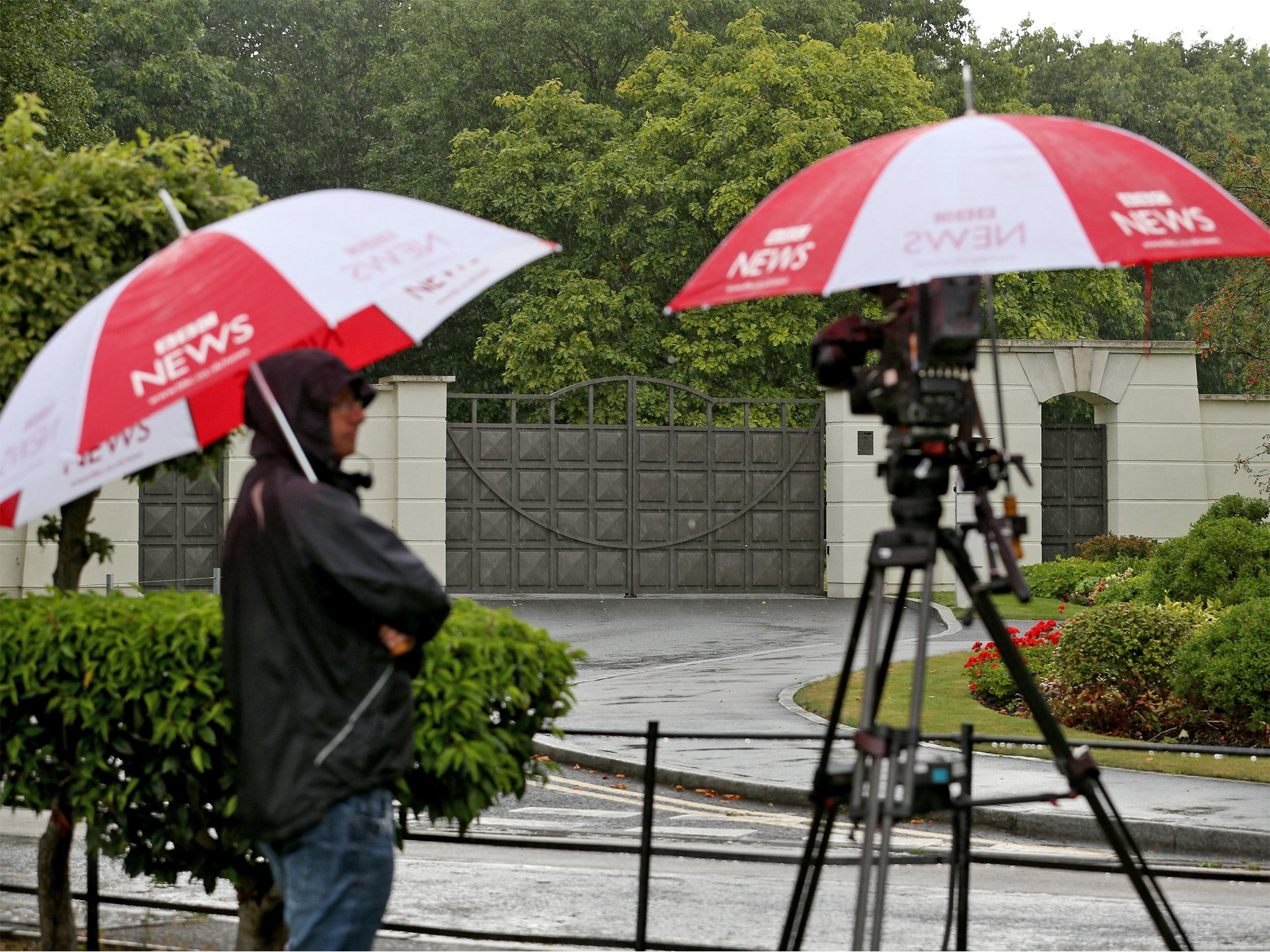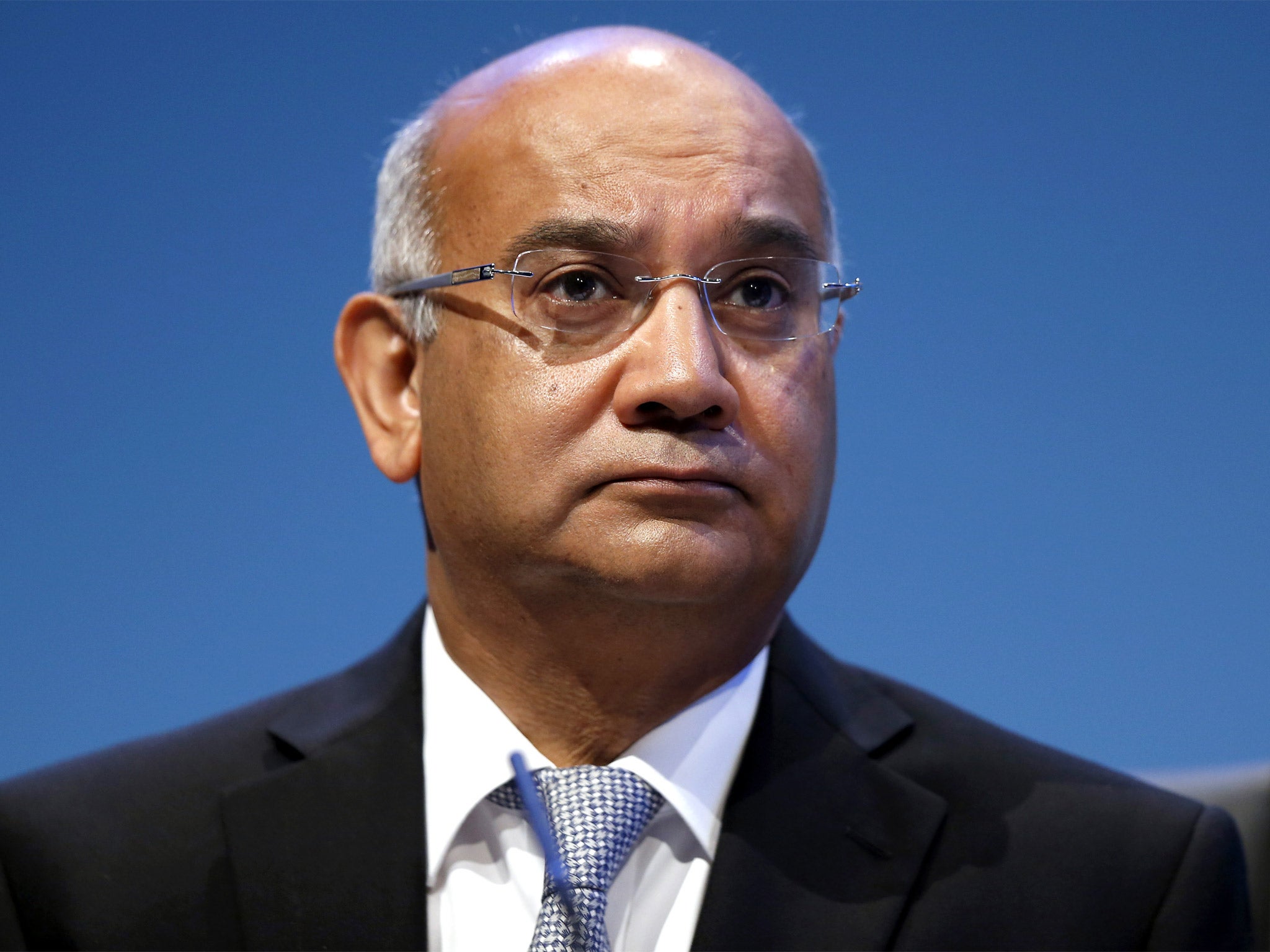BBC faces corruption allegation over its Cliff Richard police raid coverage
Reporter’s relationship with police under scrutiny as Director General is summoned by MPs to explain extensive live broadcast of swoop on singer’s home

Your support helps us to tell the story
From reproductive rights to climate change to Big Tech, The Independent is on the ground when the story is developing. Whether it's investigating the financials of Elon Musk's pro-Trump PAC or producing our latest documentary, 'The A Word', which shines a light on the American women fighting for reproductive rights, we know how important it is to parse out the facts from the messaging.
At such a critical moment in US history, we need reporters on the ground. Your donation allows us to keep sending journalists to speak to both sides of the story.
The Independent is trusted by Americans across the entire political spectrum. And unlike many other quality news outlets, we choose not to lock Americans out of our reporting and analysis with paywalls. We believe quality journalism should be available to everyone, paid for by those who can afford it.
Your support makes all the difference.Some 55 years after a teenage Cliff Richard first appeared before the BBC’s cameras on the short-lived music show Drumbeat, the corporation afforded the singer a far more spectacular production last week – when he wasn’t even present.
It dispatched a helicopter to hover over Sir Cliff’s Berkshire home and stationed its reporters at the singer’s gates before South Yorkshire Police had even arrived to raid the premises, following an accusation of sex abuse in 1985.
Tonight that coverage – at first regarded as a notable scoop – had the potential to escalate into the first crisis for BBC News in the tenure of current Director General Tony Hall, who has been summoned to explain himself by the Commons Select Committee on Home Affairs. Committee chairman Keith Vaz has demanded answers to a series of nine questions on how the BBC came to know about the raid.
Nick Herbert, the former policing minister, has gone as far as suggesting that police force and the broadcaster may have acted in a corrupt way.
The BBC has received close to 600 complaints over the tone of its coverage. Of these, 255 expressed concern about how the BBC knew about the raid, 197 thought the BBC had given the story too much coverage and 107 felt the broadcaster suggested the singer was guilty. An additional 35 people complained that the BBC’s use of a helicopter was too intrusive or a waste of money. The veteran broadcaster Michael Parkinson has compared the BBC’s reporting to a “witch hunt” that “would have done the red tops credit”.
When Lord Hall arrived at the BBC in the wake of the Savile scandal, the task of restoring confidence in BBC News was at the top of his in-tray. Yet the BBC newsroom is under pressure like never before. Only last month, James Harding, the BBC’s Director of News and Current Affairs, announced the cutting of 415 posts. Morale is low.
The Independent has been told that more than 750 staff – more than one in seven of BBC journalists – have inquired about redundancy terms. But as resources are cut, Mr Harding, the former editor of The Times, is anxious the BBC gets more scoops. In a speech last December, he told his staff: “Above all, I want us to have the confidence, the resources and the time to devote to more of the BBC’s own, original journalism.”
To many observers, the BBC’s coverage of the raid was both extraordinary and disproportionate. As the news chopper looked down on the police operation, the writer and journalist Tony Parsons tweeted: “Memo to the BBC – Sir Cliff Richard should really, really not be the lead item on your world news. They are burying children alive in Iraq.”
Other users of social media wondered why rival news outlets appeared behind on the story. The answer was that the BBC had made an arrangement with South Yorkshire Police to be present on the raid. Journalists at Sky News were left scrambling to confirm the story with police as the BBC broadcast remarkable aerial footage of officers searching the property.
The story was a triumph for Dan Johnson, the BBC News reporter for the North-east and Cumbria, who had the original tip on the planned raid. According to a statement later issued by South Yorkshire Police: “The force was contacted some weeks ago by a BBC reporter who made it clear he knew of the existence of an investigation. It was clear he [was] in a position to publish it.”
There seems to have been – at the least – naivety on the force’s part. The BBC, in the wake of its disastrous false association of Lord McAlpine with paedophilia, would surely not have risked jeopardising a police operation by prematurely speculating that the singer was accused of sex abuse.
The BBC’s coverage of the raid must be seen in the historical context of its failures in reporting Savile and the recent stifling of media coverage of another disgraced former BBC presenter, Rolf Harris. In that December speech, Harding urged his staff to be bold: “Our response to Savile and McAlpine should not be that we shy away from investigative reporting and the coverage of difficult issues. In fact, we must renew our commitment to curious, inquisitive journalism in the public interest.”
That was a difficult challenge at a time when the BBC is anxious not to make more reporting blunders as it sets out its case for an improved licence fee settlement in its next Royal Charter. Staff working for the major current affairs shows, Panorama and Newsnight, speak of an atmosphere of caution as Lord Hall goes about his task of ensuring the BBC’s future.
But in the main newsroom, the Sir Cliff tip-off must have seemed a perfect opportunity to meet Harding’s demand for more scoops. The Director of News was away last week and it fell to his deputy, Fran Unsworth, to sign off on the story. The coverage was overseen by Jonathan Munro, the BBC’s Head of Newsgathering – newly recruited by Harding from ITV News, which has a reputation for being more gung-ho than the BBC in its treatment of exclusives. The ITV approach was exemplified by its explicit coverage of the murderers of Lee Rigby in Woolwich, which won the award for best news coverage at this year’s Baftas, to the chagrin of BBC news executives.

Some BBC journalists were pleased to see the corporation being first with the Sir Cliff story. “I don’t think there will be a lot of hand-wringing about this,” said one. “If the BBC is going to be taken seriously as the place where people come first for news then you need to be discovering interesting things that other people don’t have.”
Senior BBC figures are anxious that Lord Hall stands up to the Home Affairs committee, and they believe Mr Vaz has over-stepped the mark with his aggressive questions, including: “Who authorised a news helicopter to be launched to cover the search and on what information did they make this decision?” One senior BBC source said: “This is another example of the complete failure of politicians to appreciate the editorial independence of the BBC.”
Nonetheless, the BBC’s handling of the story has drawn criticism from quarters where it usually finds sympathy. Joan Smith, executive director of Hacked Off, which normally reserves its criticism for the tabloids, said there were “questions to answer” for the BBC. “The Leveson report recommended that briefings to the press should be handled ‘through open and transparent procedures’, which clearly did not happen here,” she said.
For human rights lawyer Geoffrey Robertson QC, the force treated Sir Cliff “as though he were a murderer or bank robber” and the BBC should have owned up earlier to its involvement in the process. “Unethically, in my view, it suppressed this important news for three days.” Martin Moore, director of the Media Standards Trust, said the scale of the BBC’s coverage was a result of the access the broadcaster was given by the police.
“I’m afraid in this instance their tabloid instincts got the better of them,” said Steven Barnett, professor of communications at the University of Westminster. “[The coverage] didn’t need to be with helicopters and leading on all the bulletins.” He conceded that the BBC was in a difficult place. “Either they’re accused of sitting on a scoop and it’s Savile all over again or they’re accused of tabloid tactics."
Join our commenting forum
Join thought-provoking conversations, follow other Independent readers and see their replies
Comments